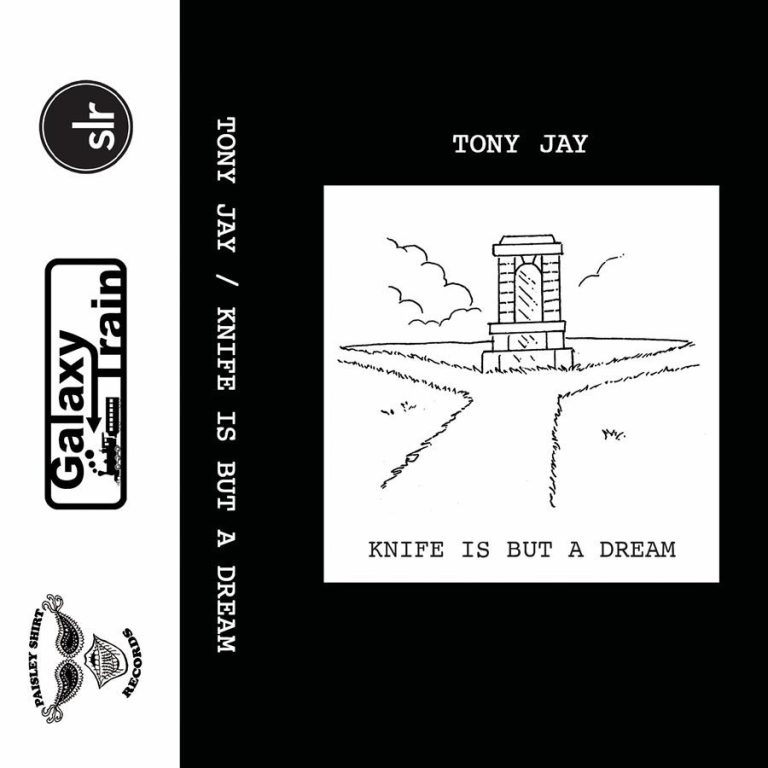While remaining true to his experimental roots, Tony Jay offers his most song-oriented set. The 15 tracks on Knife Is but a Dream point to ageless cycles: birth, death, love, terror. Working with a range of ambient sonics, opaque vocals, and lo-fi production approaches, Jay explores the connections between creation and death, reconciling his romantic and nihilistic impulses.
“Something Kind” is bathed in serrated static and balmy mist, Jay’s voice emerging – grief-stricken, narcotized, otherworldly. “I just called because I can’t stand the words inside my head”, he moans. The aptly titled “Cool Beat”, meanwhile, is built around just that, a metronomic pulse morphing into a vaporwave-inspired mix of crunchy atmospherics and clangorous accents. Jay stands at the intersection of anger and grief, lost in the kind of confusion that can kill but can also yield understanding, wisdom, compassion.
The title song is a garage-y slowcore take that recalls Horse Jumper of Love or the slow- part of Death Crash. A clean yet muffled electric guitar reverberates in a fuzzy cosmos, as Jay struggles to articulate his words. “The Softest String” features Jay’s affinity for decayed/decaying elegance a la Grouper, an acoustic guitar, spectral background vocals, and synthy accents coalescing into a bardic soundtrack. The piece is somehow celestial yet disturbing, much in the way that blue sky or calm water or good news can trigger fear of the unknown/what might happen next.
“A Dream Goes on Forever” unfurls as the musical analog to an erasure poem. The listener imagines a clear, fully formed track being edited, cut away, jabbed, gutted, until broken bones and slabs of flesh remain. With “Spider Plants”, Jay’s electric guitar gets toothy, juxtaposed with a synthy thread that sways in a summery breeze. “The World in Julia’s Eyes” brings to mind Elliott Smith in the afterlife, a folksy ghost singing from a dim hallway into a cheap microphone, broadcast through a vintage walkie-talkie. As the song progresses, guitar static comes unspooled, long, scratchy notes dragged across the audial field.
“Treasury of Reveries” with its tilt toward underworld strangeness and surreal pop inventiveness crosses such acts as Duster, Spirit of the Beehive and Dean Blunt. As alluring as it is unsettling, discombobulating as entrancing, the song seems like something that might play in a moldy music box found hidden behind a wall in an abandoned house. This is the cut that drones right before the main character’s life takes a decided turn toward the magical. Or the tragic. “This Sux” works with a similar vibe and tone, sounding as if it’s playing underwater, or from behind a forcefield, or from within a pyre in which some ancient vampire committed suicide. Jay’s lyrics are almost discernible, but not quite.
With Knife Is but a Dream, Jay continues to explore psychic mazes, labyrinths, and limbos. There’s disorientation here but also a sense of acceptance. Depression, dejection, consternation, but also equanimity. There’s birth, deconstruction, vanishment. In this sense, Jay’s tracks function like mandalas, symbols of striking beauty that point to inevitable impermanence.

